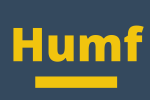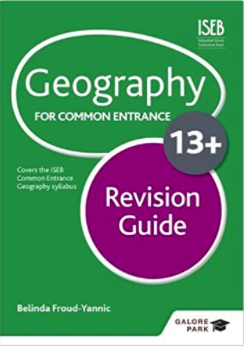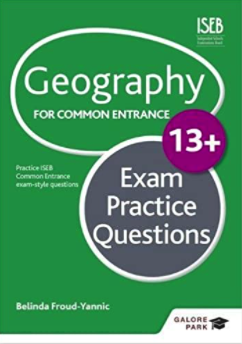Geography Common Entrance Revision
Geography Common Entrance Revision Information
The exam has 7 Sections:
- Global Location
- OS Map Work
- Geomorphology: Rivers and Coasts
- Weather and Climate
- Plate Tectonics
- Transport and Industry
- Population and Settlement
There is a lot of theory for each section but you must know your CASE STUDIES as well.
Global Location
You must be able to locate the following places:
Continents
- Africa
- Antarctica
- Asia
- Oceania
- Europe
- North and South America
Mountain ranges
- Alps
- Andes
- Himalayas
- Pyrenees
- Rockies
Desert
- Sahara
Oceans / Seas
- Arctic
- Indian
- Atlantic
- Pacific
- Southern Oceans
- Red Sea
Rivers
- Amazon
- Mississippi
- Nile
- Rhine
- Yangtze (Chang Jiang)
- Ganges
Other global features
- Arctic Circle
- Antarctic Circle
- Equator
- International Dateline
- North Pole
- Prime Meridian
- South Pole
- Tropic of Cancer
- Tropic of Capricorn
British Isles
Countries
- UK
- Republic of Ireland
Sea areas
- English Channel
- Irish Sea
- North Sea
Rivers
- Severn
- Thames
- Trent
- Clyde
- Shannon
- Mersey
- Tyne
- Rhine
- Amazon
Upland Areas
- Grampians
- Lake District
- Pennines
- Snowdonia
Islands
- Anglesey
- Jersey
- Guernsey
- Isle of Man
- Orkneys
- Shetlands
- Isle of Wight
Major cities
- Belfast
- Birmingham
- Cardiff
- Dublin
- Edinburgh
- Glasgow
- Liverpool
- London
- Manchester
- Newcastle
- Plymouth
- Bristol
- Southampton
Other cities and city states
- Dubai
- Kolkata
- Shanghai
- Los Angeles
- New York
- Rio de Janeiro
- Sao Paulo
- Sydney
- Vancouver
Countries and Capitals
Europe
- Belgium (Brussels)
- Denmark (Copenhagen)
- Netherlands (Amsterdam)
- France (Paris)
- Germany (Berlin)
- Greece (Athens)
- Iceland (Reykjavik)
- Italy (Rome)
- Poland (Warsaw)
- Portugal (Lisbon)
- Russia (Moscow)
- Spain (Madrid)
- Norway (Oslo)
- Switzerland (Bern)
Africa
- Egypt (Cairo)
- Ethiopia (Addis Ababa)
- Kenya (Nairobi)
- Nigeria (Abuja)
- South Africa (Pretoria)
- Ghana (Accra)
- South Africa (Pretoria)
Americas
- Brazil (Brasilia)
- Chile (Santiago)
- Canada (Ottawa)
- Mexico (Mexico City)
- USA (Washington DC)
- Argentina (Buenos Aires)
Asia
- Afghanistan (Kabul)
- Bangladesh (Dhaka)
- China (Beijing)
- India (New Dehli)
- Indonesia (Jakarta)
- Iran (Tehran)
- Iraq (Baghdad)
- Israel (Jerusalem)
- Japan (Tokyo)
- Pakistan (Islamabad)
- Saudi Arabia (Riyadh)
- South Korea (Seoul)
- Thailand (Bangkok)
- Turkey (Ankara)
Oceania
- Australia (Canberra)
- New Zealand (Wellington)
- Papua New Guinea (Port Moresby)
OS Map Work
- You must be able to use an OS map to do the following:
- Locate places using 4 and 6 figure grid references
- Understand contour lines and spot heights
- Produce a cross section of a map (Top Form only)
- Calculate distance and scale
- Use a key and map symbols
- Understand and give compass direction
- Calculate the size of an area e.g. woods
Rivers and coasts
You need to understand
- Processes of weathering
- Physical (freeze thaw/frost shattering, onion-skin)
- Chemical
- Biological
- Processes of erosion and how they create landforms
- Hydraulic action
- Abrasion (corrasion)
- Solution (corrosion)
- Attrition
- You must know how each of these processes work:
- Solution
- Suspension
- Traction
- Saltation
- Swash
- Backwash
- Longshore Drift
- You must be able to draw annotated diagram of the formation of the following:
- Waterfall and Gorge
- Meander and Ox Bow lake
- V Shaped Valley
- Caves, Arches, Stacks, Stumps
- Spits
- Flooding
- The causes of floods, their effects on people, economy and environment and how people and organisations respond to floods
- CASE STUDY: Boscastle
- Causes, effects, responses
- Impact on people
- Impact on Environment
- Lessons learnt from Boscastle
- Know some key facts and figures – Date, deaths, cost, rescue effort.
Earthquakes and volcanoes
You should know:
- Where earthquakes are located
- Where Volcanoes are located
- Ring of Fire
- How to annotate a diagram of destructive plate boundary and be able to name the plates.
CASE STUDY: Japanese Earthquake 2011
- What plates were involved?
- What was the magnitude?
- Human Impacts
- Environmental Impacts
- Human Responses
CASE STUDY: Mount Etna
- What plates were involved?
- What were the dates and places involved?
- Human Impacts
- Environmental Impacts
- Human Responses
Weather and climate
You should know
- The differences between weather and climate microclimates
- Microclimates: Aspect, shelter, buildings, surface and natural features affect
- The water cycle including the terms evaporation, transpiration, condensation, precipitation, interception, surface run-off, infiltration and through flow.
3 Types of rainfall – You must be able to draw an annotated diagram of each of these:
- Relief (and draw diagram)
- Convectional (and draw diagram)
- Frontal (and draw diagram)
British Isles Weather
- The causes of temperature and rainfall variation from place to place in the British Isles
- The main temperature and rainfall patterns in the British Isles
- The influence of latitude, altitude, relief, prevailing winds, distance from coast on weather
- The impact of the North Atlantic Drift
Transport and Industry
You should know:
- How transport routes link settlements and industries.
- How transport links can affect quality of life.
- Advantages and Disadvantages of transporting people and goods by road, rails, air, and sea.
The different sectors of economic activity
- Primary
- Secondary
- Tertiary
- Quaternary
- What percentage of people work in each sector in a LEDC
- What percentage of people work in each sector in a MEDC
- The benefits and problems which economic activities (Industry) bring to areas
- Explain the following terms
- Living Standards
- Exploit
- Protect
- Conserve
- Manage
- Stewardship
- Sustainable Development
CASE STUDY: HS2
- Where the line is due to be located
- Figures: Cost of the project, journey times.
- Arguments for HS2
- Arguments against HS2
CASE STUDY: Nike
- Why they manufacture in LEDC’s
- Where labour comes from
- Where Raw Materials come from
- Where their market is
- Where their communication links are
- Why sweatshops can occur
- Benefits it brings to local community
- Disadvantages to local community
- Nike Inputs, Throughputs, Outputs
Population and Settlement
You should know:
- Why some areas are over crowded and others are relatively empty
The meaning of
- Birth rate
- Death rate
- Natural Increase
- Migration
- The factors which early settlers considered when choosing sites for new settlements
- Reasons why some settlements grew and others did not
- The relationship between the provision of goods and services and settlement size
CASE STUDY: Queen Elizabeth Olympic Park
- Where it is located
- How has it been redeveloped
- Positive and Negative effects of management on people and the environment

Environmental Effects
Effects on the Environment

Human Effects
Effects that impact humans.

Responses
Long Term Responses
Short Term Responses


